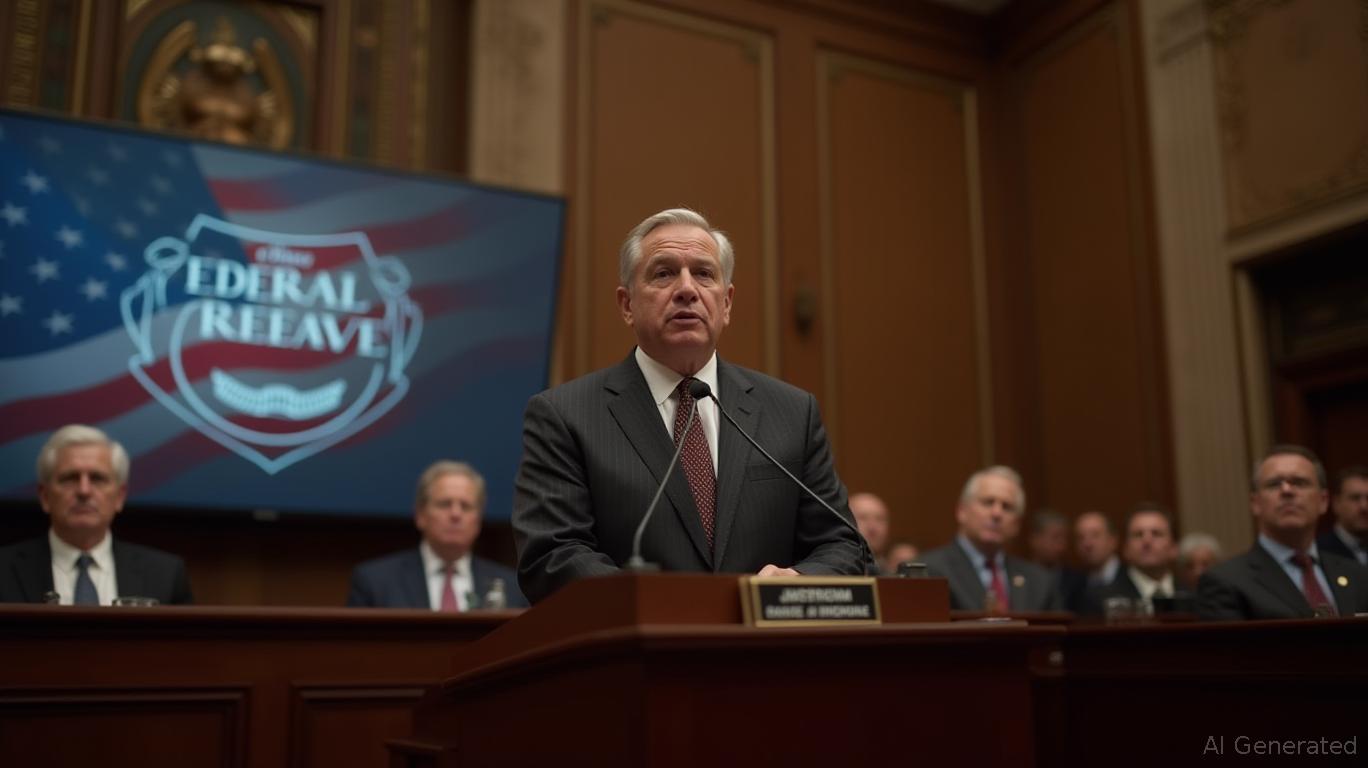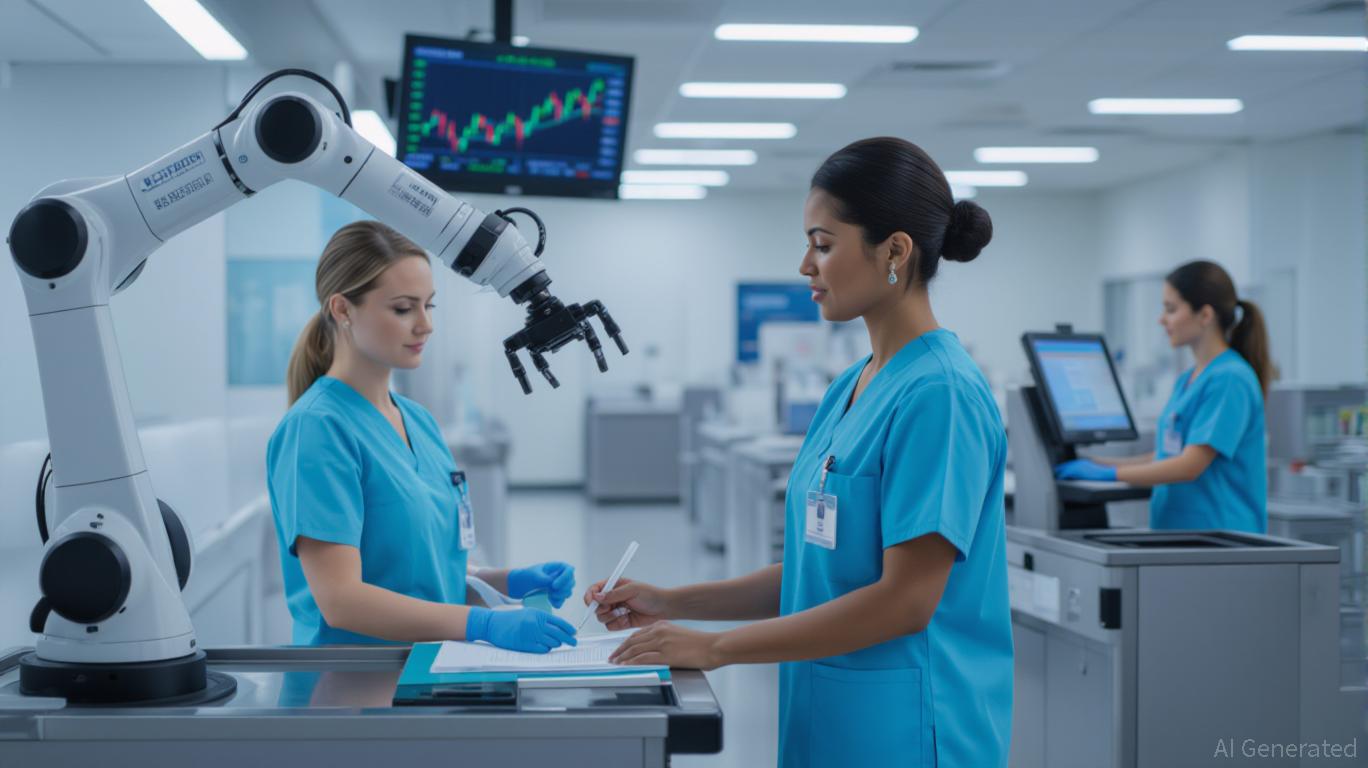The Fed's Independence Hangs in the Balance as Trump Seeks a New Leader
- Trump’s administration evaluates 11 candidates for Fed chair as Powell’s term ends in May 2026. - Chris Waller (27% PolyMarket odds) and Kevin Warsh emerge as top contenders with market expertise. - Trump’s attempt to remove Fed Governor Lisa Cook sparks legal battles and independence concerns. - Political influence risks Fed’s independence, potentially destabilizing U.S. monetary policy and global economy.
The Federal Reserve is on the verge of a leadership transition as the term of Chair Jerome Powell is set to expire in May 2026. With the Trump administration evaluating a list of 11 potential candidates for the role, the likelihood of identifying a successor has gained traction, particularly given the rising odds for certain individuals on betting platforms like PolyMarket. The process is set to begin in earnest after Labor Day, with U.S. Treasury Secretary Scott Bessent confirming that interviews for candidates will commence at that time and a shortlist of three to four candidates will be presented to President Trump afterward [5].
Mohamed El-Erian, chief economic advisor at Allianz, has highlighted Rick Rieder, BlackRock’s Chief Investment Officer of Global Fixed Income, and former Fed Governor Kevin Warsh as the strongest candidates for the position. El-Erian praised their deep understanding of markets, communication skills, and experience, noting that both would be well-equipped to lead the central bank [1]. Rieder, when asked about his potential nomination, emphasized the importance of lowering interest rates in the coming year, stating that any Fed chair must address the need for rate reductions to support the economy [1].
Chris Waller, another prominent figure on the list of potential replacements, is currently the frontrunner in the PolyMarket odds, with a 27% chance of being named the next Fed chair this year. His approach to monetary policy, which relies heavily on forecasting and anticipatory measures, aligns with the Trump administration’s desire for a more proactive stance on rate-setting [5]. Kevin Hassett and Kevin Warsh are also notable contenders, with 11.2% and 9.3% odds, respectively, though the market still favors the likelihood that a successor will not be named this year, with a 37% probability of that outcome [5].
The process of selecting a new Fed chair is complicated by the broader political landscape, particularly the recent attempt by President Trump to remove Federal Reserve Governor Lisa Cook. This move, which has sparked legal and constitutional debates, has raised concerns about the independence of the Fed and the potential for political interference in monetary policy [2]. Cook has vowed to fight the removal in court, with her legal team arguing that Trump lacks the authority to fire her based on the allegations made in a referral letter from a Trump-appointed official [2].
Analysts warn that the Fed’s independence is a critical factor in maintaining economic stability. As demonstrated historically, when central bank policy is driven by political considerations, the risk of inflationary pressures and economic instability rises. The potential replacement of Cook with a Trump appointee would give the administration a majority on the Fed board, increasing its influence over the central bank’s decisions [4]. This could have long-term implications for U.S. monetary policy and the global economy, as the Fed plays a pivotal role in shaping interest rates and managing inflation [4].
As the administration moves forward with its evaluation of candidates, the process will be closely monitored by financial markets and economic observers. The appointment of the next Fed chair will carry significant weight, not only in shaping the direction of U.S. monetary policy but also in determining the broader economic trajectory in the coming years [5].
Source:

Disclaimer: The content of this article solely reflects the author's opinion and does not represent the platform in any capacity. This article is not intended to serve as a reference for making investment decisions.
You may also like
Decentralized Leadership and the Future of Industrial Governance: What MSTY's Silence Reveals About the Market's Next Frontier
- Decentralized governance emerges as industrial sector's strategic shift, driven by Michelin, Maersk, and AI-driven efficiency gains (15-35%). - Mynd Solutions (MSTY) remains silent on governance reforms despite $45B valuation, raising concerns about competitive stagnation vs. proactive competitors. - Deloitte 2024 data shows 30% higher ROI for decentralized firms, yet MSTY clings to traditional hierarchies amid New Hampshire's 2024 DAO Act developments. - Investors face dilemma: MSTY's delayed decentrali

AI's Dual Impact on Employment: Strategic Sector Rotation for a Resilient Portfolio
- AI reshapes global labor markets by 2025, displacing clerical roles while creating jobs in robotics and AI training. - Investors must balance growth in high-demand sectors like healthcare and AI infrastructure with hedging against automation risks via defensive assets. - Strategic tools include AI-driven ETFs (e.g., IGPT, THRO), inverse ETFs (e.g., SH), and platforms for ethical AI training (e.g., Palantir, C3.ai). - Sector rotation and real-time risk management tools help optimize portfolios amid AI's d

Investment advisers ’dominating’ with $18.3B in Bitcoin, Ether ETFs

Ether ETFs capture 10x more inflows than Bitcoin in 5 days
